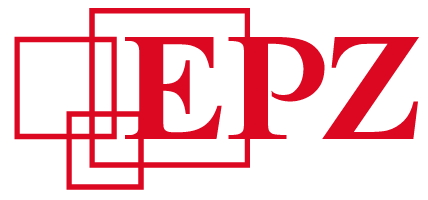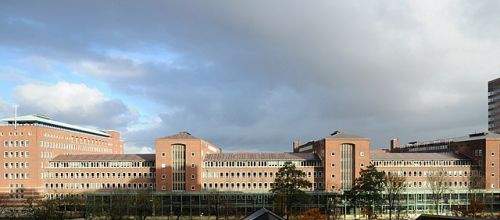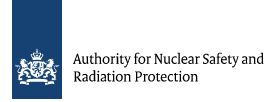Topics:
You may be a vendor of NPPs. Or an investor and possibly potential owner of an NPP in the Netherlands. Although many countries share the same values regarding nuclear safety, and accept the IAEA guidance, still there are marked differences in the way things 'work' in various countries when it is about licensing, acceptable standards, the way documentation needs to be structured and written to have a smooth ride through the licensing process. And you have to know some things about what standards apply to the operation of a NPP in your country of choice. And what sites are available, with what parties to partner, et cetera. This page provides a start for you, together with the pages about policies and regulations and what's important when selecting a reactor type.
You need a site
There is a site available and it is the site the current 485 MWe Borssele NPP is sitting on. The owner is firm EPZ. You better contact these guys because they will have a say in what to do on their site. And they know all about the site characteristics, and may also help to educate your future reactor operating staff to Dutch standards and so on.
Until recently, there was a coal-fired plant on a part of the premises, next to the NPP, but that has been demolished some time ago, and the terrain has been cleared of the coal storage area too. So there is ample space for new projects.

Logo company EPZ, licence holder and operator of Borssele NPP and owner of suitable site for new-build.
Moreover, the government has stated that the Borssele site is the preferred site for nuclear new build. The second in line for new build, is the so-called Maasvlakte, but it is clear the Borssele site is way more favorite.
Contact governmental organisations
Dutch energy policy focuses on energy transition, i.e. reducing the share of fossil fuels in energy supply. Today, in addition to wind and solar, this includes nuclear energy. Efforts are underway to enable the expansion of nuclear energy in the Netherlands. A group has been set up within the Ministry of Economic Affairs & Climate (EZK) to work on all practical aspects. It also studies ways financing can be facilitated.

A building of the Ministry of EZK
You may also want to check the website of the Regulatory Body for all things nuclear in the Netherlands, the ANVS. They are responsible for licensing, oversight and enforcement. ANVS has a staff of about 150 (and growing) and is based in the Hague.

You need support from a local knowledgeable consultant with nuclear engineering & and safety background
You may want to evaluate various reactor types to assess their suitability for the regulatory situation in the Netherlands and also the way they fit in the prospective site and its infrastructural environment.
You may also need support in the licensing process. Doing this properly requires a lot of experience, great knowledge of the Dutch regulations, experience with how supporting documents should be put together and written to enable a proper assessment by the regulatory body, the ANVS.
For a foreign supplier, this is difficult. It will supply a lot of technical documentation to its client, but the client (also the licence applicant) will still have to make it a whole consistant information package. A Technical Support Organisation with expertise in Dutch nuclear licences and knowledge of the details of nuclear technology can help.
Regarding support on nuclear licensing, safety analysis, design evaluation, operational support et cetera, in the Netherlands there is only one suitable consultancy firm, the Nuclear Research & consultancy Group (NRG) with facilities and offices in Arnhem and Petten. Also refer to the pages of their consultancy branch, with their slogan 'Ensuring nuclear performance'. For decades they have been the supporting consultancy for all major nuclear licence holders in the Netherlands, while also supporting foreign clients and being involved in international certification of new reactor designs.

Logo of the consultancy-branch of the Nuclear Research and consultancy Group (NRG). Recently NRG merged with the project organisation of the PALLAS-reactor, creating a new NRG-PALLAS entity, with very recent experience with contracting a reactor, planning, engineering and licensing in the Netherlands.
Regarding support on non-nuclear topics, there are several Dutch excellent engineering and consultancy companies (or companies with an office in the Netherlands) like Arcadis, Royal HaskoningDHV en DNV.
You may check out reactor-certifications
You might want to select a reactor type, that has received some kind of type certification and/or has been licensed elsewhere before. This may aid the licensing process. You local consultant in the Netherlands may guide you in this selection and also show you how this could be used in a licence application. And also advise you about the possibilities if such a track record does not exist for your choice of reactor type.
EUR certification
There are several initiatives, which improve the licensability of reactor types. A very important one is the 'European Utility Requirements for LWR Nuclear Power Plants' (EUR). This 'set of requirements' defines the safety requirements a reactor design should meet to be 'licensable' in European countries. These specifications are contained in the 'EUR Specification Document', which consists of several volumes (Volumes 1, 2 & 4). There is also a Volume 3, which describes per approved reactor type, how that type meets the requirements.
The EUR requirements were drawn up by major electricity producers and a number of advisory organisations, which united in 1991 to form the 'EUR Organisation'. From the Netherlands, NRG is a member of that EUR organisation (and is even a co-founder).
Designers of new types of nuclear power plants/reactors can submit their design to the EUR Organisation in a form laid down in the 'EUR Specification Document' mentioned above. The EUR Organisation then does a review. This is a lengthy process in which the designers adjust their design according to comments. The assessing experts (from NRG and others) have a deep understanding of the safety features of nuclear power plants and requirements they must meet.
When the assessment of a reactor design is complete, it produces a subset of 'Volume 3' of the EUR Specification Document. The reactor design is then in effect EUR-certified.
Other certifications
In the UK, they have the 'Generic Design Assessment (GDA) of new nuclear power stations'. This is carried out by the licensing authority, the 'ONR Office for Nuclear Regulation' and 'the Environment Agency'. The GDA is a kind of preliminary study in which the government assesses a design for its safety features.
In the US, the US Nuclear Regulatory Commission (US NRC) is the Competent Authority for nuclear power plants. There is the Design Certification for reactor types, similar to the GDA in the UK. Several models have been 'certified' and several certification processes are ongoing. There is also much to learn from these certifications for Dutch practice, although the regulations in the US differ considerably from those in the Netherlands.
back to top